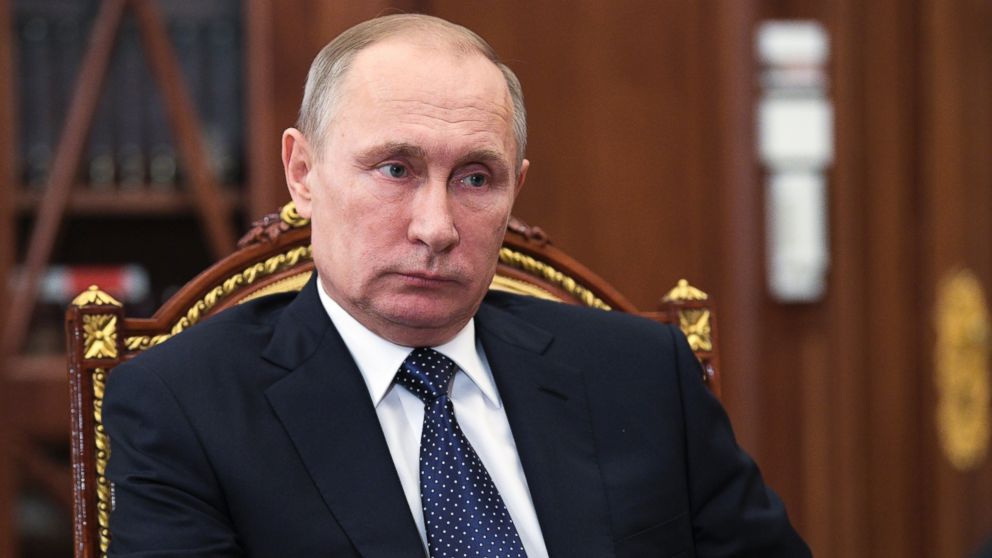Kremlin Calls New Trump-Russia Claims 'Pulp Fiction'
MOSCOW— -- The Kremlin has dismissed extraordinary allegations that it had collected compromising material on President-elect Donald Trump and that it collaborated with Trump in an espionage campaign to undermine Hillary Clinton during the presidential race.
A Kremlin spokesman called the claims that were made in documents apparently produced by a former British spy “pulp fiction,” and suggested they were intended to block a rapprochement between Russia and the United States.
"It’s an absolute spoof story, it’s absolute fabrication, it’s complete nonsense,” Dmitry Peskov, spokesman for Russian President Vladimir Putin, said in a conference call with reporters. “Without question, it’s necessary to react to this with a certain humor, although there is also a sad side. It’s an obvious attempt to harm our bilateral relations.”
Echoing a denial made by Trump Tuesday, Peskov said the release of the documents, which have apparently been circulating among U.S. intelligence officials for months, was part of a "witch hunt" against the president-elect.
The explosive but unsubstantiated allegations detonated in the U.S. news media Tuesday after CNN reported that U.S. intelligence officials had briefed Trump on the contents of the documents and informed him they were investigating the claims in it that Russia has compromising materials on him.
The collection of memos was written by a former spy from Britain’s intelligence services who was commissioned by Republican and Democrat operatives to investigate Trump during the presidential campaign. The British former agent passed them to the FBI during the summer.
The memos have been circulating among journalists since around then, after party operatives distributed them, including to ABC News, but most news outlets had deferred releasing them because the claims, often potentially highly defamatory, could not be confirmed.
The memos paint Trump as colluding directly with Moscow in an operation to defeat Clinton and tip the election to him. The materials allege that Russia has cultivated Trump for years and that it had succeeded in collecting compromising material about him when he visited Moscow in 2013 to hold the Miss Universe pageant.
Most spectacularly, the memos allege that Trump’s top campaign officials worked closely with Kremlin officials to coordinate the hacking of Democratic Party organizations and the release of stolen material intended to embarrass Clinton.
Trump and advisers from his team mentioned in the memos have rejected them as absurd fakes.
“FAKE NEWS - A TOTAL POLITICAL WITCH HUNT!” Trump wrote on Twitter, shortly after the documents became widely available.
Donald Trump adviser Kellyanne Conway today called the allegations “nonsense from the internet.”
Michael Cohen, a Trump lawyer and campaign adviser, denied a specific claim in the documents that during the election campaign he had flown to Prague in the Czech Republic to meet secretly with Russian officials to discuss the hacks on the Clinton campaign.
“I’ve never actually walked the land in Prague, and last August I was not in Prague,” Cohen told ABC News.
The memos do not provide any supporting materials to back up the allegations, beyond statements from anonymous sources supposedly close to senior Russian officials. But U.S. officials have told ABC News it had become difficult to ignore them as Trump continued to make positive statements about Putin, even as American intelligence agencies alleged the Kremlin had mounted a major cyberoperation to interfere with U.S. elections.
Democratic lawmakers on Capitol Hill Tuesday pressed FBI Director James Comey on whether he had conducted an investigation into the allegations. Comey declined to answer, citing agency policy, but a senior official briefed on the issue said the allegations were too serious to ignore.
The memos were reportedly raised in a classified briefing given separately by America’s top intelligence officials to President Obama and Trump last week on the Russian effort to interfere in the presidential race. A declassified summary of the intelligence report presented to Trump was released publicly last week and accused Moscow of running an unprecedented operation involving the release of Democratic Party documents, as well as a state propaganda campaign intended to undermine Clinton and bolster Trump.
Trump has previously mostly mocked that judgment by the U.S. intelligence agencies, though he accepted after the briefing that Russia may have been involved.
The claims in the memos, though, are far more extraordinary and U.S. intelligence officials have said they have struggled to confirm them.
The memos allege the Kremlin began targeting Trump as many as eight years ago, hoping to use him to disrupt the U.S. political system.
The Kremlin and other Russians officials today said that was absurd.
“There’s, of course, no kompromat,” Nikita Kovalev, a former chief of Russia’s FSB intelligence service and now a member of parliament, told the Interfax news agency, using the Russian word for secret materials collected for political blackmail.
"Collecting kompromat on a person whose has come and is occupied with conducting a beauty contest; who is that interesting for?” asked Kovalev, who ran the FSB from 1996-1998, long before Trump’s 2013 visit.
“In Russia, I can say from my own experience that we don't have such practices.”




